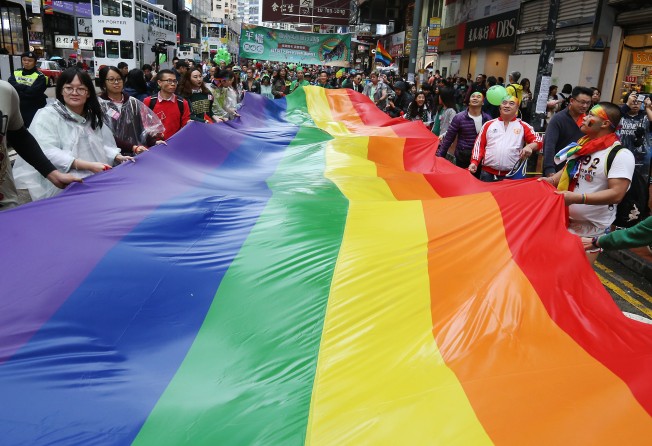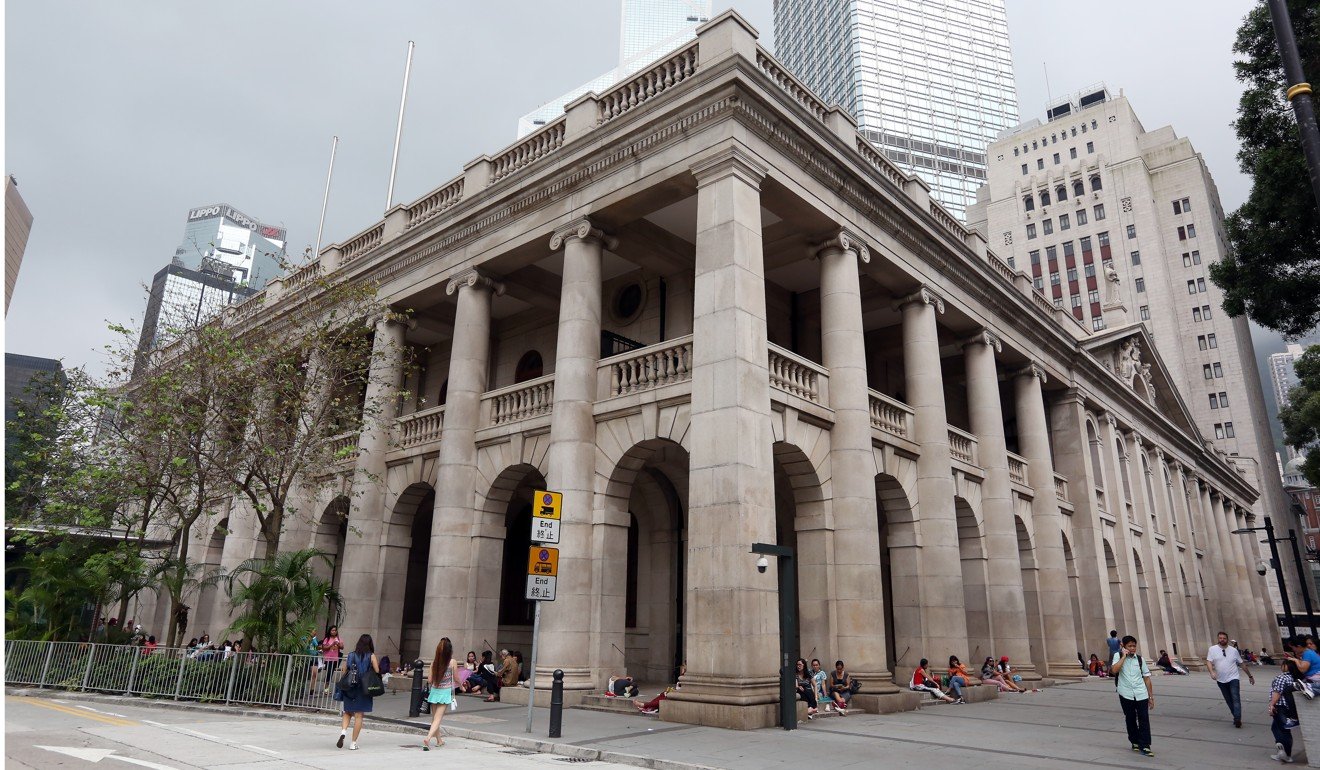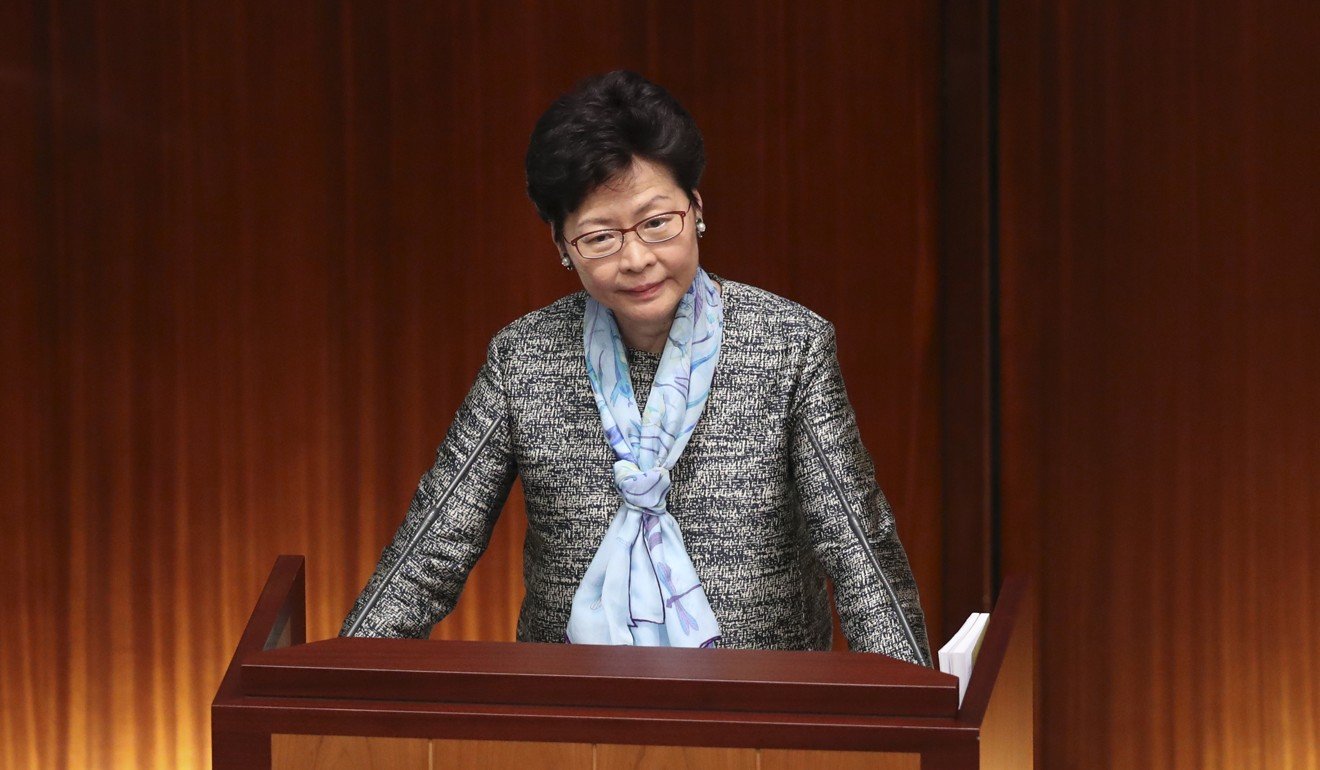LGBT advocates slam government for staying silent on interim scheme that lets same-sex spouses work and study in Hong Kong
Special arrangement, similar to a dependant visa, has been in place for months following landmark court ruling in favour of lesbian expat against Immigration Department

Hong Kong LGBT rights advocates are slamming the Immigration Department for keeping mum on a special arrangement that allows same-sex spouses to work and study in the city – a scheme that has been in place for months but remains largely unknown to the public.
“If people don’t know about their rights, how do they apply for [the arrangement]?” Brian Leung Siu-fai, chief campaigner for local gay rights group Big Love Alliance, said on Tuesday.
The interim arrangement, which grants similar permissions to those from a dependant visa, was put in place following a successful judicial review lodged by a lesbian expatriate, known in court documents as QT, in 2015. The British citizen took the city’s director of immigration to court after his department refused to grant her a dependant visa. Her civil-union partner, known as SS, has a job in Hong Kong.
In a landmark judgment last week, the Court of Final Appeal ruled in favour of QT. The decision essentially requires the immigration department to grant QT and others like her – who have either married or entered into a civil union overseas – a dependant visa. The visa was previously strictly exclusive to partners in heterosexual relationships.
In September last year, however, the Court of Appeal had already sided with QT, meaning that the immigration authority should have begun providing the visa at that point.
On Tuesday, a spokesman for the department revealed that between the two court rulings – a period of about 10 months – it had been granting an “interim arrangement” to same-sex couples applying for a spousal visas.
Under regular conditions, a dependant who wants to join a sponsor admitted to Hong Kong for employment or studies must come as a spouse or an unmarried dependant child. As this applied only to heterosexual couples, some same-sex spouses would enter the city as visitors and were unable to pursue studies or take jobs in the city, and faced constraints on their period of stay.
The new measures allow a same-sex spouse, legally solemnised, to stay in Hong Kong as a dependant. They will be granted an initial stay of 12 months upon entry or of a time frame in line with the condition of stay for their sponsor. The dependant is allowed to work, conduct business or study without further approval from the authority.

The Post had been aware of the existence of such a scheme before the QT judgment last week. An inquiry was made to the Immigration Department on May 30 for confirmation and to ascertain figures.
But the department replied on June 1: “As QT v Director of Immigration is pending appeal to the Court of Final Appeal, it is not appropriate for us to comment on the matters raised in your inquiry.”
“Also, we will not comment on individual cases,” its spokesman added.
Raymond Chan Chi-yuen, Hong Kong’s only openly gay legislative councillor, pointed out that after the appeal court judgement last September, the need to grant same-sex couples the dependant visa was no longer merely at the “discretion” of the department, but a “policy”.
“For a policy, it has to be transparent so that everyone knows about it,” he said, referring to the interim arrangement.
Chan said that people who were keen to seek entry to Hong Kong under the new measures had been left to rely on word of mouth and information from friends.
“Some people dare not apply,” he added.
Big Love Alliance’s Leung described the immigration department’s approach as “stealthy”. He said that since the interim arrangement had not been made known, some people who had considered moving to the city during this period might have abandoned the idea.
“This defeats Hong Kong’s goal to attract talent,” he said. The top court’s decision had been praised by members of the city’s business sector for making Hong Kong more competitive for employers.
Solicitor Michael Vidler, who assisted QT, told the Post that close to 20 of his clients had been granted visas under the interim arrangement before the recent ruling.
Speaking outside court earlier following the Court of Final Appeal ruling, Vidler noted that the Immigration Department had not applied for a suspension after the appeal court ruled against them last year.
“[The dependant visas] should have been granted on the day of the decision of the Court of Appeal,” he said, rather than what the immigration called “outside-the-policy” permission.
In its statement on Tuesday, the immigration spokesman said the interim measures would continue until a new dependant visa arrangement was formulated in compliance with the court judgement.
The authorities refused to disclose how many applications the department had been handling or how many dependants had come to Hong Kong under such discretion.

Chief Executive Carrie Lam Cheng Yuet-ngor said on Tuesday that the government “fully respected” the top court’s ruling and would decide on its next step with regards to compliance.
She however corrected a reporter who suggested that the court had “recognised LGBT marriage” for foreign same-sex couples.
“I read the judgement in full,” Lam told reporters before her weekly Executive Council meeting. “The appeal case before CFA was not about LGBT rights per se as you have suggested. The appeal is about ... [whether] the director of immigration has exercised [his duties] fairly and without discrimination, [and] the administration of his policy concerning dependant visas.”
“So it’s a question concerning immigration policy,” Lam said.
Additional reporting by Alvin Lum